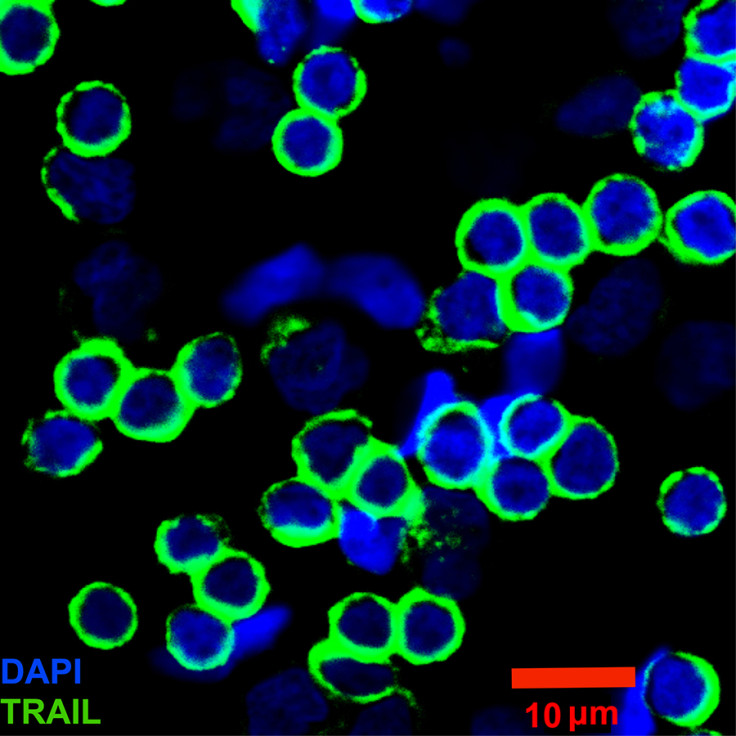Protein enhanced white blood cells turn into 'super natural killers' of cancer cells

Following their successful technique to eliminate bloodstream metastasis, Cornell biomedical engineers have now developed one to seek and destroy lymph node cancer cells. Eliminating cancer cells from the bloodstream and lymph nodes can totally halt the onset of metastasis or spread of cancer to other parts.
In the latest work on mouse models, they injected a cancer killing protein that attaches itself to white blood cells and turns them into "super natural killer cells". The enhanced white blood cells seek the cancer cells and destroy them.
The lymph nodes play a key role in advancing metastasis throughout the body. Usually in stages II and III, the tumours have likely spread to the lymph nodes. At stage IV, the cancer has advanced from the lymph nodes to organs and other parts of the body.
Nanoparticles of liposomes carrying TRAIL (Tumor necrosis factor Related Apoptosis-Inducing Ligand) were used by the team to deliver the protein to the lymph nodes. These attach to white blood cells to create the 'super natural killer cells' and these completely eliminate lymph node metastases in mice.
"Our anti-cancer technology has been tested in the laboratory with human blood and cancer cells, and it has also been tested in living mice. So far we have obtained very exciting and encouraging results, and we have seen no harmful effects of the therapy. My group is working hard to advance the technology further so that it can one day benefit human patients," Michael R King told IBTimes UK. King is the Daljit S and Elaine Sarkaria Professor of Biomedical Engineering and senior author of the paper, 'Super Natural Killer Cells That Target Metastases in the Tumor Draining Lymph Nodes'. It was published in Biomaterials.
The killer cells carrying the protein do not kill normal cells, said King in reply to a query. "We have verified this in the laboratory, and tested for adverse effects in mice. Also, the dosages of protein that we use are 100 times less than dosages that have been safely used in human volunteers (human testing done by other researchers a few years ago). Thus, we believe that this new therapy could be used safely without side effects… although the FDA will still require very extensive testing of this."
Between 29 and 37 percent of patients with breast, colorectal and lung cancers are diagnosed with metastases in their tumor-draining lymph nodes -- those lymph nodes that lie downstream from the tumor, and those patients are at a higher risk for distant-organ metastases and later-stage cancer diagnoses, says the Cornell press release.
In January 2014, King and his colleagues published research that showed that metastasizing cancer cells in the bloodstream were destroyed when the TRAIL protein was attached to white blood cells.
© Copyright IBTimes 2025. All rights reserved.





















